As the snow melts and spring makes its warmer presence felt in Japan, the cherry blossom trees burst into bloom. A curtain of pink and white flowers delicately envelopes Japan’s streets, waterways, temples, houses and parks. Japan is then in the midst of cherry blossom fever.
The cherry blossoms are a national (and international) obsession, with TV news reports regularly updating the Japanese people about where and when the flowers will appear, generally from late March onward. The cherry tree, or sakura, is central to Japanese culture and identity. You will see them on kimonos, paintings, currency and even in food. The blossoms signal the time of year for new beginnings and an opportunity to start fresh. The tradition of hanami – a picnic where friends, families and work colleagues gather under the cherry trees – has been around since the eighth century.
Here is all you need to know about cherry blossom season in Japan and how Wendy Wu Tours can help you get there.
When do the cherry blossoms flower?
The flowering season differs slightly from year-to-year, depending on the weather during the preceding months. If it has been very cold, they may open earlier. Geographical location also determines where the trees will bloom first. Usually, the milder the climate, the earlier in the season the blossoms will open. In the major tourist cities, such as Tokyo, Kyoto and Osaka, the cherry blossom season typically begins at the end of March to early April. Further afield, on the warmer islands of Okinawa, cherry blossoms sometimes open as early as January, while on the cooler north island of Hokkaido, they can bloom as late as May.
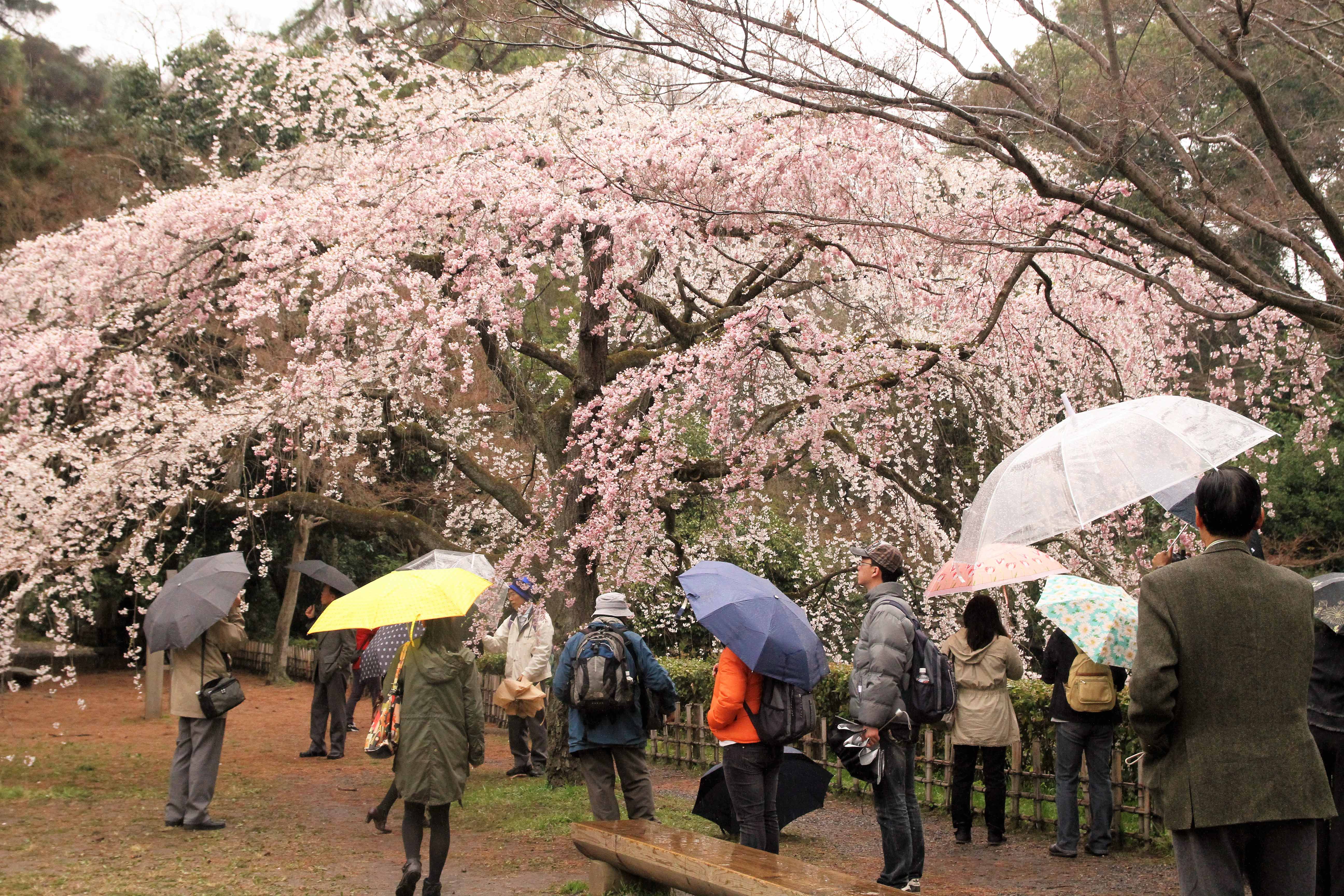
Blanket of Cherry Blossoms, Kyoto
How long are they in bloom?
The cherry blossom season is quite short. Full bloom occurs around a week after the first blossoms open. Another week later, the blooming peaks and the blossoms begin to fall. If it is quite windy or wet, it can be even quicker.
The Japanese love cherry blossoms because they are short-lived. Their culture is considerate of the impermanence of things – mono no aware – literally translating as ‘pathos of things’ or the bittersweet taste of passing. This is central in Japanese life and the evanescent cherry blossoms are the perfect incarnation of this idea. Samurai also adopted the cherry blossom as their emblem, because just like the blossoms, they would often end their life at their moment of greatest bloom.
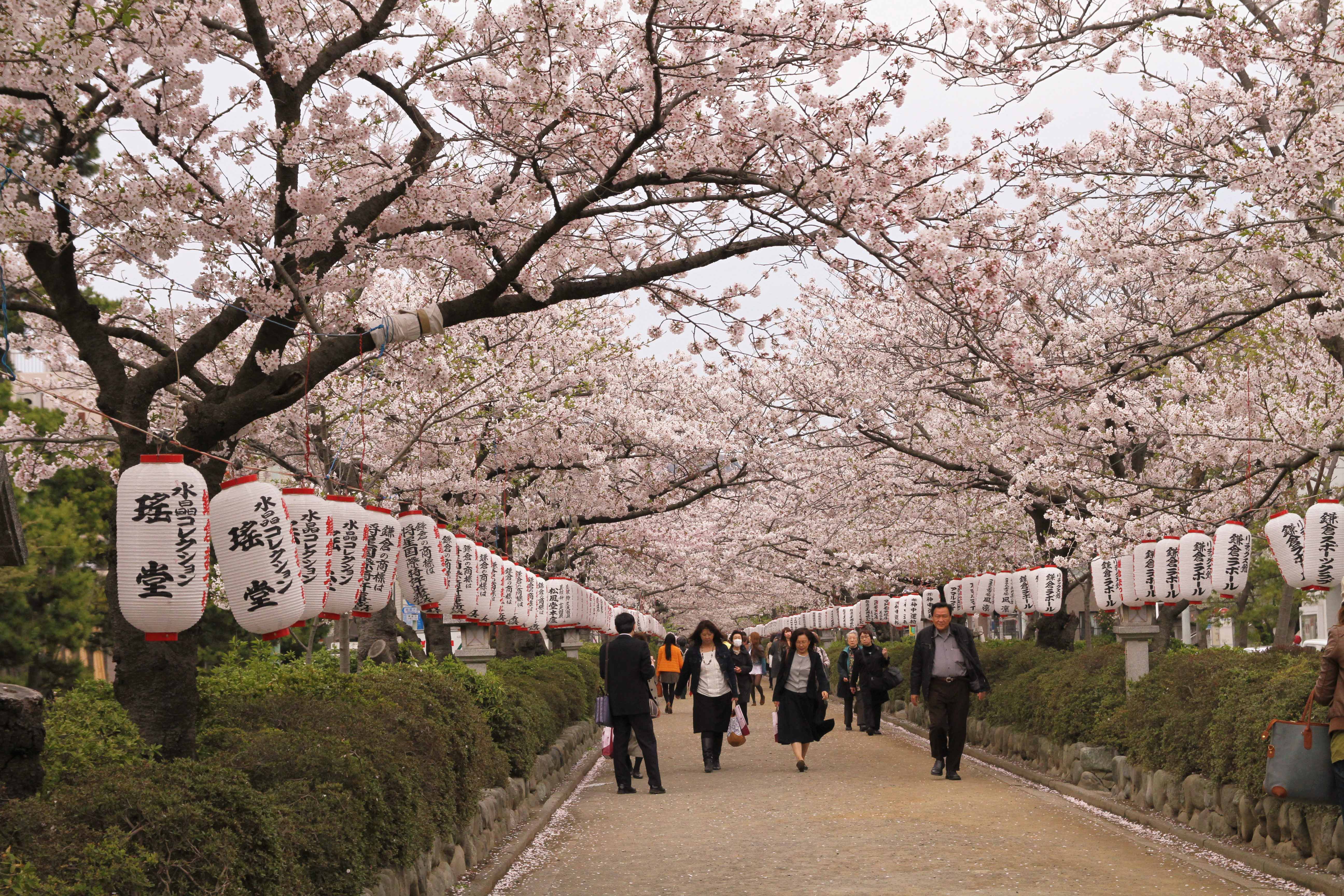
Enveloped by blossoms, Kamarkura
The tradition of Hanami
Once the cherry blossom season is officially open, the hanami (‘flower viewing’) begins. Park lands become social hotspots. Families, painters, sketchers, photographers, office workers, and groups of friends unite for picnics and parties under the blanket of cherry tree blooms. In years past, businesses sent junior employees to mind the best spots, sometimes over night! Nowadays, people leave notes on the ground reserving their spot. Once the group arrives, they remove their shoes and settle in together in small huddles to begin drinking sake and beer, and eating bento boxes together. Many places even have ‘light-ups’ of the cherry blossoms so that the partying can carry on into the evening.
There are a few rules you should follow during hanami:
• Respect the trees. Don’t pick the blossoms or shake the branches
• Always take your garbage with you
• Check the rules for the park you are in as they can differ from place to place
If you are planning to join one of our Japan tours at this time, you will find yourself in the midst of a festival atmosphere. If you’re passing through a hanami, it is highly likely you may be asked to join in the revelry. You may find yourself constantly searching for ‘the most amazing tree’ as you travel around and this is where the expertise of having an experienced local guide with insider knowledge can be helpful.
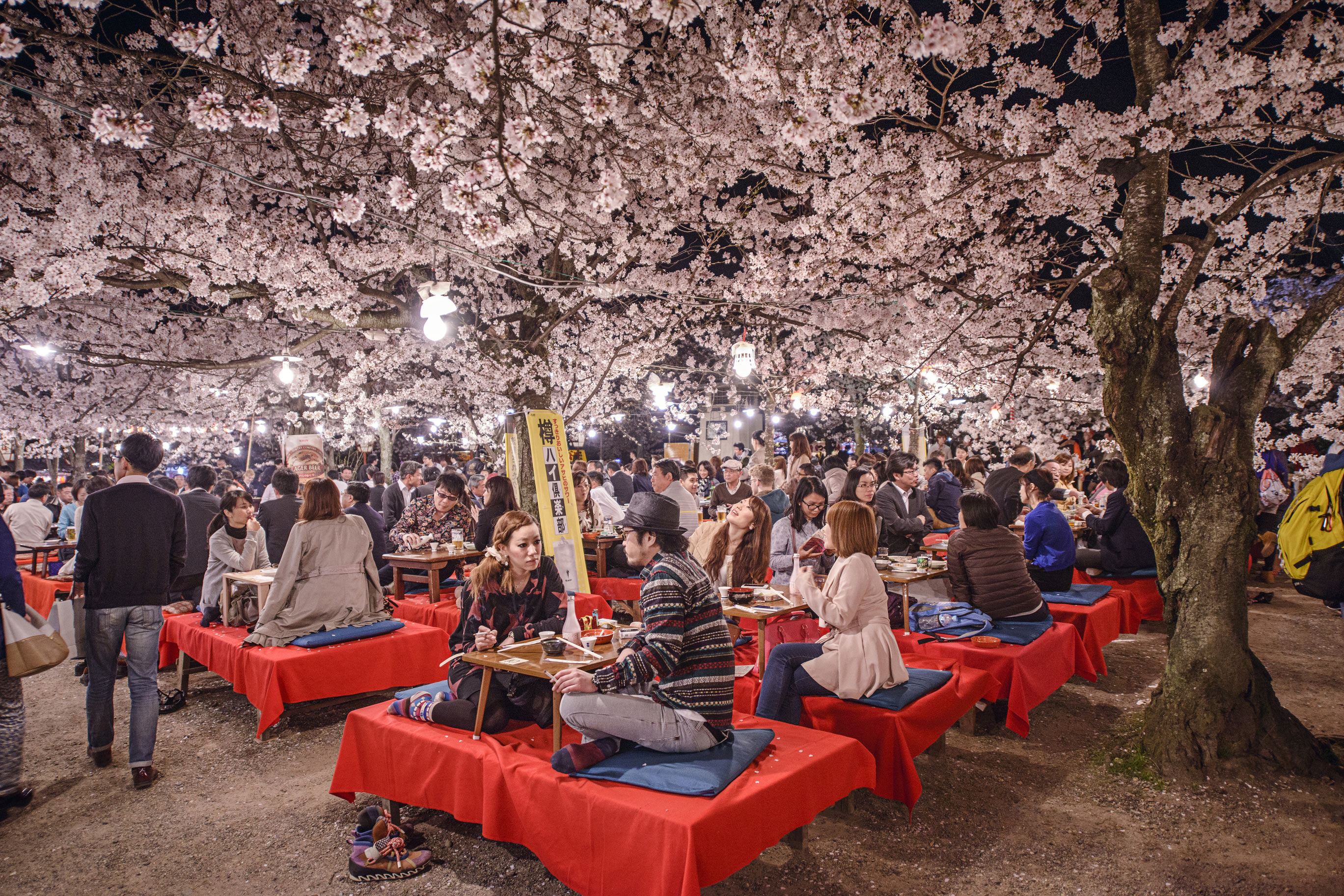
The tradition of Hanami, Kyoto
Cherry blossom delicacies
During sakura season, a variety of seasonal food and drinks are available that contain sakura or are sakura-themed. The sakura flavour is similar to a cherry or blackcurrant taste. Starbucks have sakura-flavoured macarons; McDonald’s add a sakura McFlurry to its menu. You may also come across sakura ice cream, pickled cherry blossom leaves, sakura chu-hai (a sweet alcoholic canned drink), sakura potato chips, and sakura dumplings. KitKat and Pepsi also have their own sakura flavours for sale and are good souvenirs to take home for friends and family.
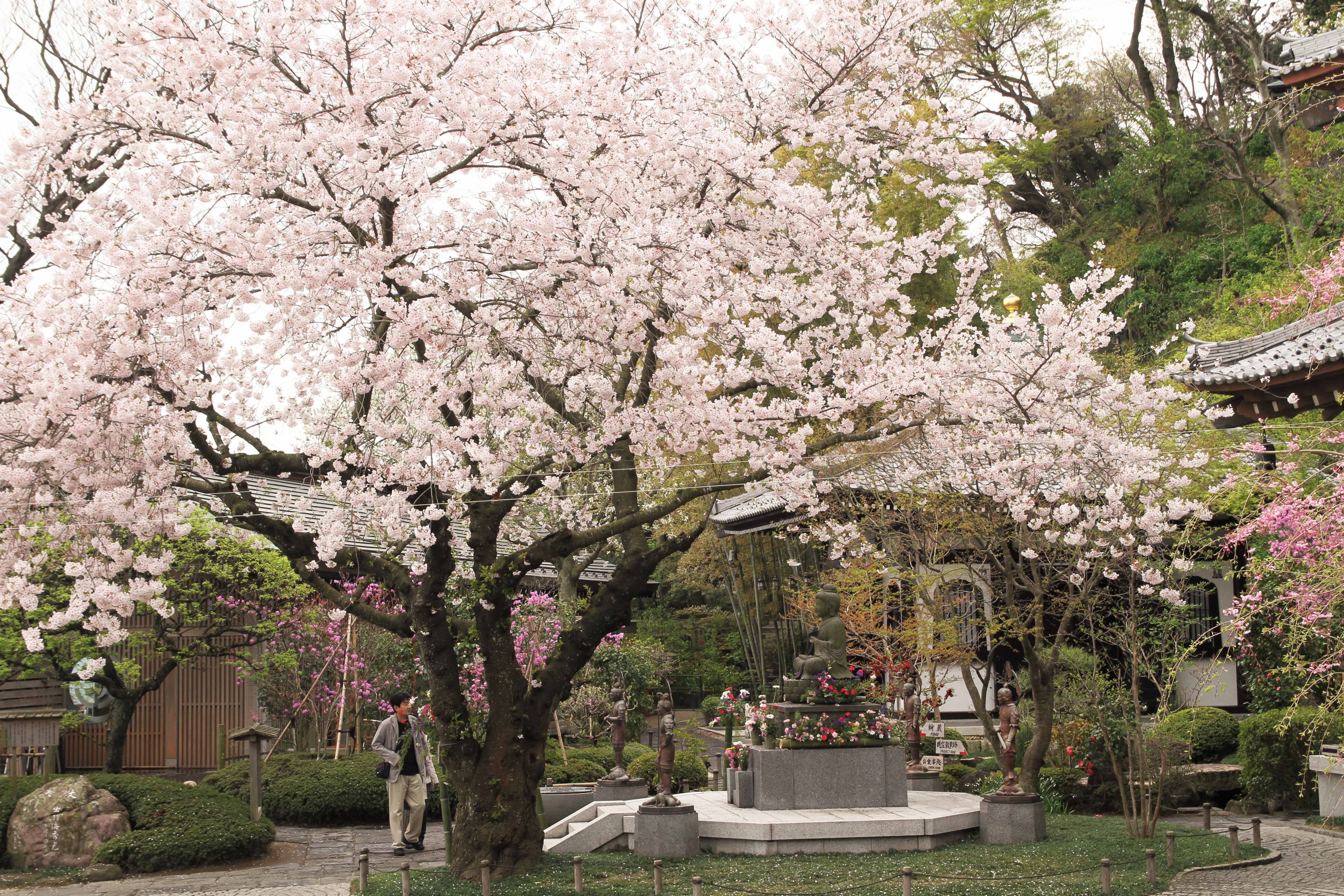
Cherry Blossom, Kamarkura
Book your cherry blossom holiday today!
Japan tours during cherry blossom season are on sale. Witness this Japanese phenomenon for yourself! Places are filling up fast so book today to avoid disappointment!
Blogs you may also be interested in:
Seasonal Japan: a land of endless discovery
Sign up for our free newsletter or request a brochure

Cherry Blossom Infographic
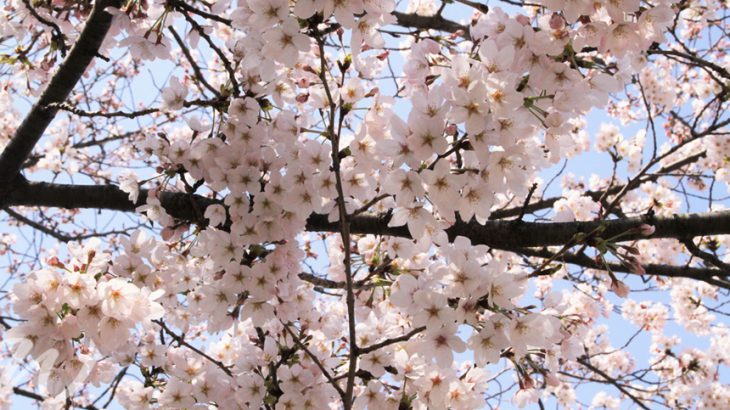
Do any of your Japanese trips go to Nagasaki, or is there enough free time for us to go on our own?
Hi Susan
Nagasaki isn’t included as part of our group tours, but you could add a private extension after your group tour if you wanted to head down there. I believe it’s about 5 hours by train from Osaka. Our reservations consultants can help you out with a quotation for that – Ph: 1300 727 998 or info@wendywutours.com.au
Thanks Susan!
Hello! This is such a wonderful post.. having stayed in Japan for over 4 years and thereby having visited many of the places whose photos you have mentioned, made me relive those days! Just thought of sharing some of the places that I feel are best for viewing the Sakura in Japan – https://www.placesinpixel.com/hanami-japan-cherry-blossom-festival/
cheers!
From a florist view, I find cherry blossoms really fascinating. The way they bloom after the winter season is really amazing. Cherry blossom is really a trademark in Japan match them with a kimono attire. Great post and the infographic is really amazing. Continue posting about Japan and will follow you.